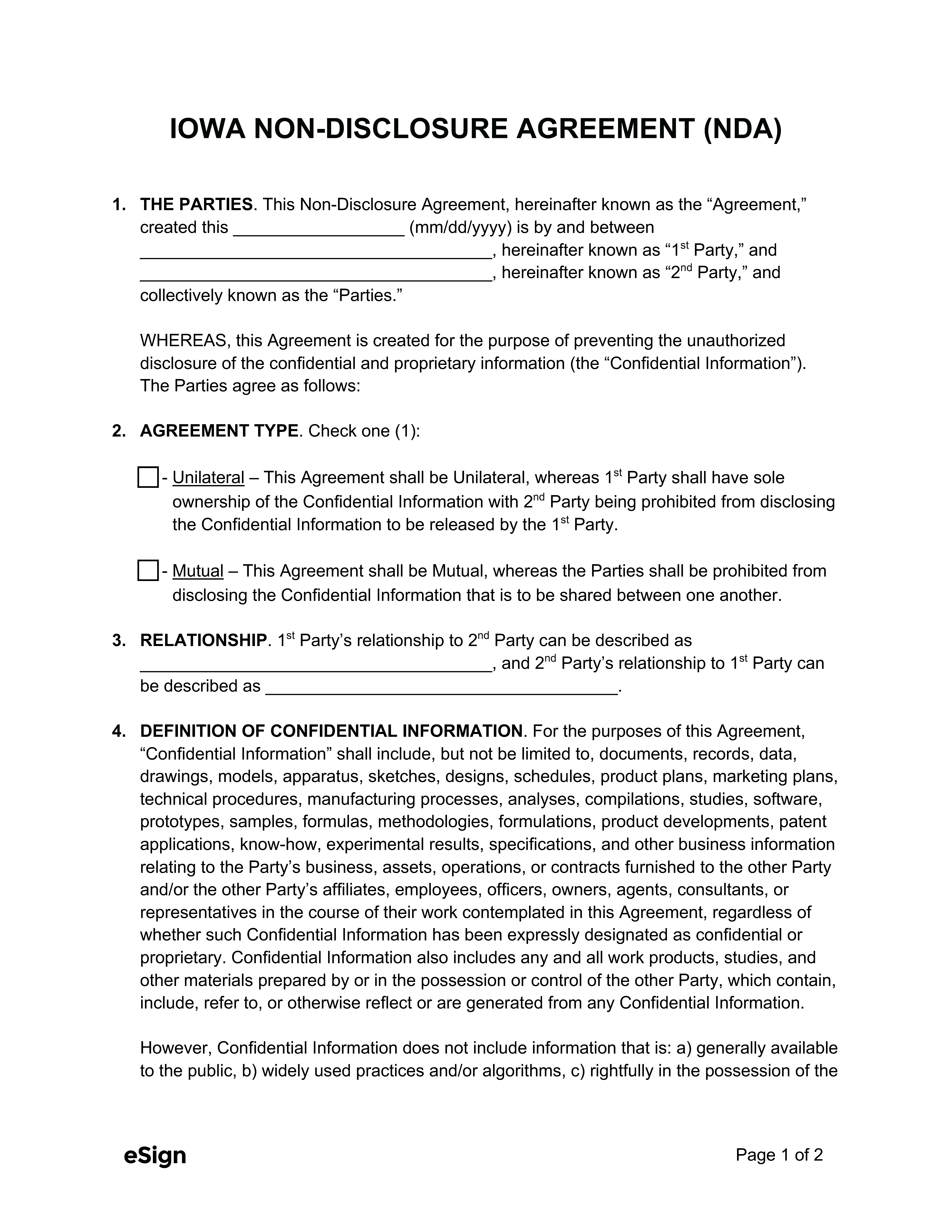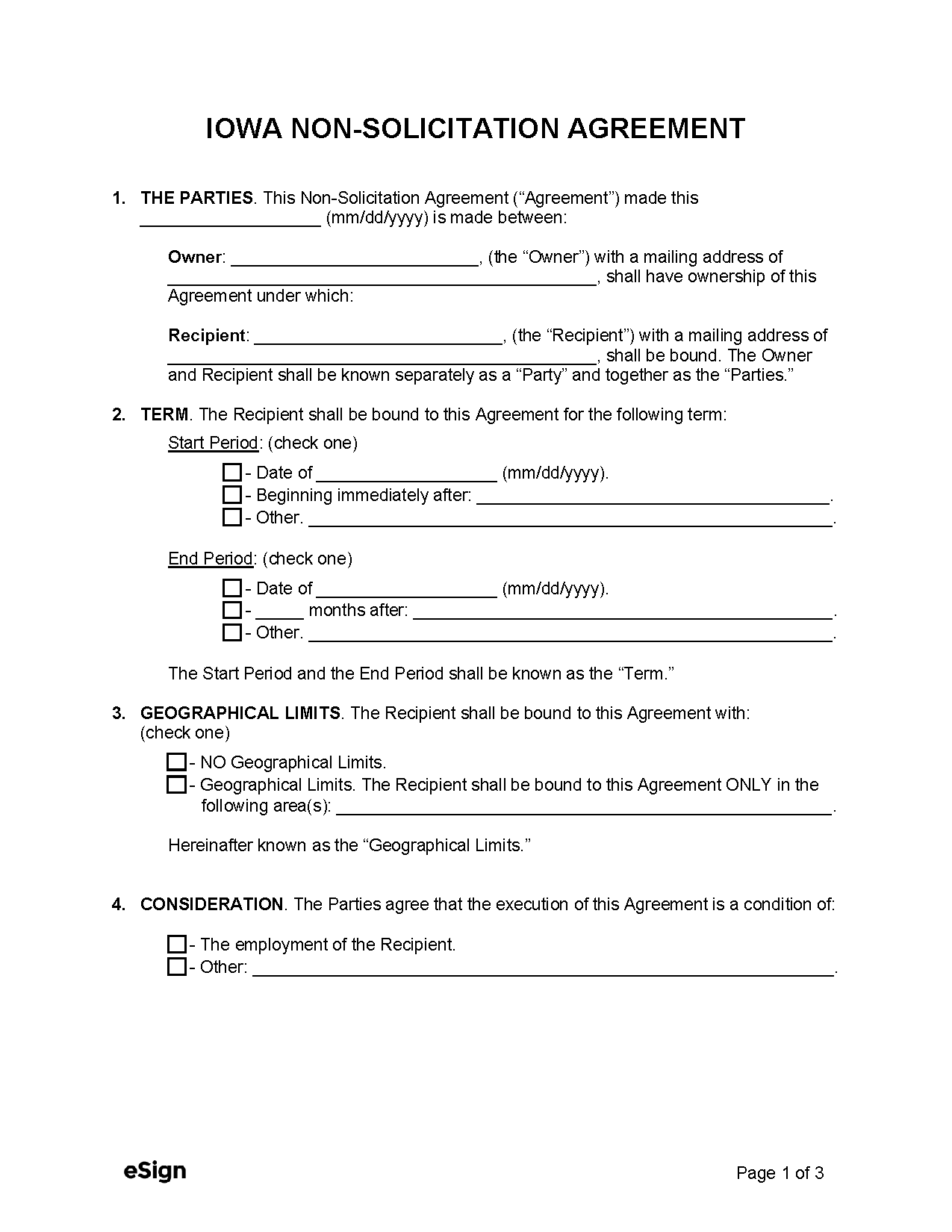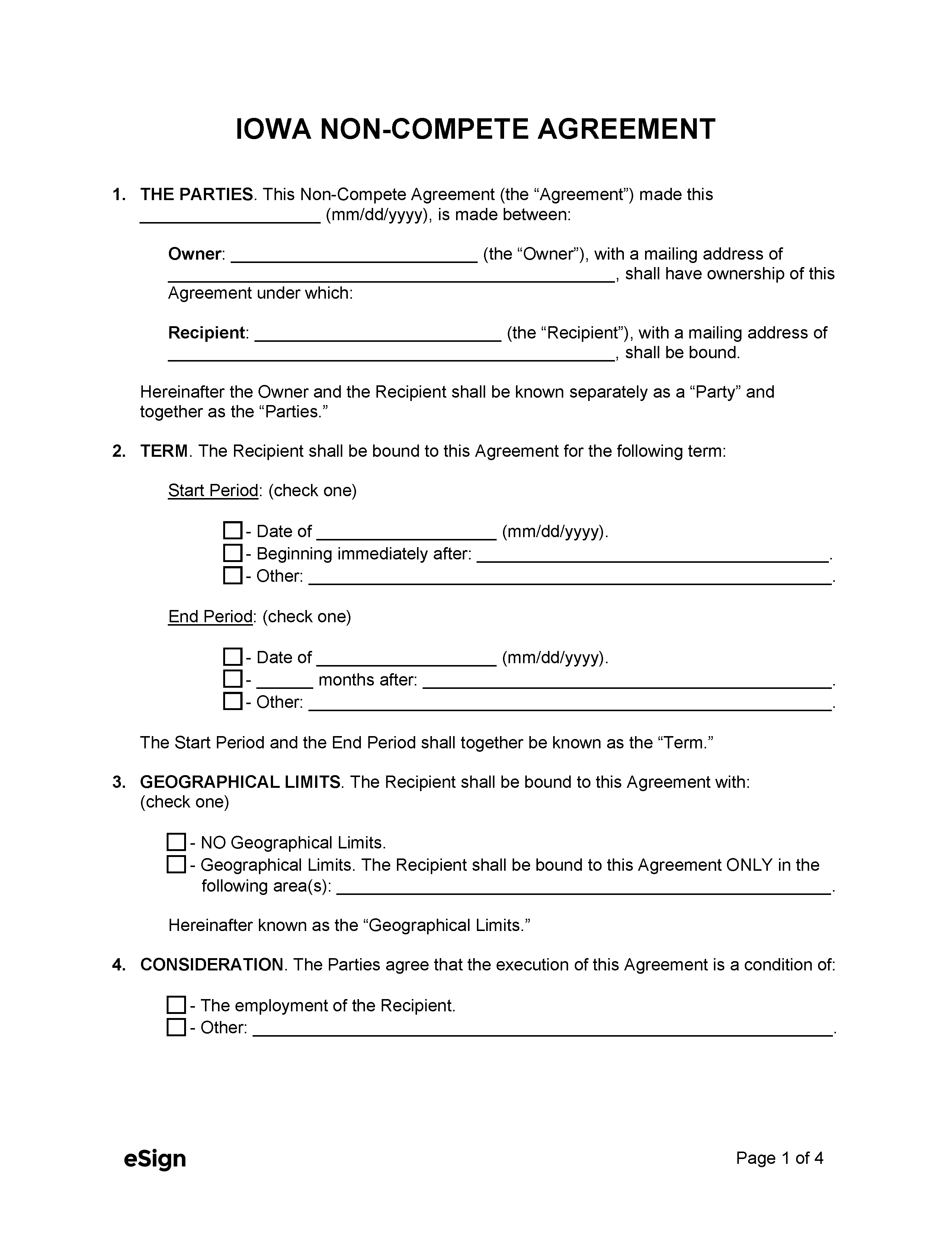A non-compete agreement establishes which services or products it applies to, what geographic area(s) the ex-employee cannot work in, and how long this restriction will be enforced. When an NCA is violated, the employer can seek a number of legal remedies, such as filing an action with the court to attempt to seek financial compensation for the loss of business.
Contents |
Enforceability in Iowa
While there are no Iowa statutes that specifically define and govern non-compete agreements, there are a number of case law sources that help the courts determine the enforceability of such agreements. Judges and justices assigned to civil suits and appeals cases will pass judgment using what is known as the three-pronged test[1], which considers the following questions:
“1. Is the restriction reasonably necessary for the protection of the employer’s business?
2. Is it unreasonably restrictive of the employer’s rights?
3. Is it prejudicial to the public interest?”
When it IS Enforceable
- Reasonable provisions. Iowa courts use their best judgment to decide whether the provisions of an NCA are “reasonable,” the interpretation of which will vary case by case.[2]
- Protect employer interests. Non-compete agreements will be enforced, insofar as they are reasonable, to protect any of the following interests:
When it’s NOT Enforceable
General
- Restraint on trade. Courts will not enforce provisions that are a restraint on trade.[7]
Industry-Specific
- Practicing law. It is illegal to create agreements that restrict another lawyer’s right to practice law after their employment has been terminated.[8]
- Franchises. After refusing to renew a contract with a franchisee, a non-compete covenant created by the franchisor is unenforceable; the franchisee has the right to continue to provide the same or similar services in that geographic market.[9]
Maximum Time Period
There are no specific time restrictions mentioned in Iowa law; however, courts will generally find a non-compete agreement unreasonably restrictive if time isn’t limited to an equitable degree. In the past, courts have often enforced agreements with two (2) to three (3) year limits, but not longer than five (5) years.[10] Furthermore, an agreement with no time limitation at all will undoubtedly be considered unenforceable.[11]
Geographical Area
Because a non-compete agreement’s geographical restriction varies greatly depending on the industry and the profession of the employee, Iowa law does not define geographical restrictions. Courts will use their best judgment to determine whether the scope is reasonable. A large radius may be enforced if the employee’s profession is specialized,[12] but in general, non-compete provisions should be limited to the area where the employee worked.
Consideration
Like most states, Iowa courts believe the hiring of an employee to be reasonable and sufficient consideration.[13] Furthermore, Iowa also considers continued employment to be adequate consideration.[14]
Sources
- Lamp v. American Prosthetics, Inc., 379 N.W.2d 909, 910 (Iowa 1986)
- Iowa Glass Depot, Inc. v. Jindrich, 338 N.W.2d 376, 381 (Iowa 1983)
- American Express Financial Advisors v. Yantis, 358 F. Supp. 2d 818, 835 (N.D. Iowa 2005)
- Dain Bosworth Inc. v. Brandhorst, 356 N.W.2d 590, 593 (Iowa Ct. App. 1984)
- Uncle B’S Bakery, Inc. v. O’Rourke, 920 F. Supp. 1405, 1437 (N.D. Iowa 1996)
- Orkin Exterminating Co., Inc. v. Burnett, 259 Iowa 1218, 1222, 146 N.W.2d 320, 324 (Iowa 1966)
- Uptown Food Store, Inc., v. Ginsberg, 255 Iowa 462,467, 123 N.W.2d 59, 62 (Iowa 1963)
- Iowa Court Rule 32:5.6(a)
- Iowa Code § 523H.8(1)(b)(3)
- The Phone Connection, Inc. v. Harbst, 494 N.W.2d 445, 449 (Iowa Ct. App. 1992)
- Wachovia Securities, L.L.C. v. Stanton, 571 F. Supp. 2d 1014, 1040 (N.D. Iowa 2008)
- Pro Edge, L.P. v. Gue, 374 F. Supp. 2d 711, 740 (N.D. Iowa 2005)
- Curtis 1000, Inc. v. Youngblade, 878 F. Supp. 1224, 1259-60 (N.D. Iowa 1995)
- Moore Business Forms, Inc. v. Wilson, 953 F. Supp. 1056, 1064 (N.D. Iowa 1996)
- APAC Teleservices, Inc. v. McRae, 985 F. Supp. 852, 856 (N.D. Iowa 1997)
Related Forms (2)

Download: PDF, Word (.docx), OpenDocument

Download: PDF, Word (.docx), OpenDocument
